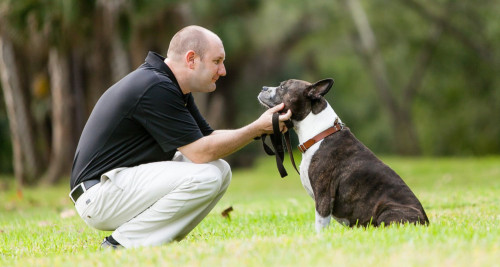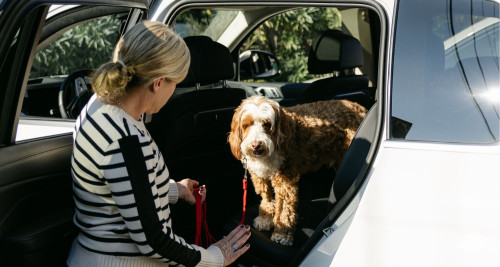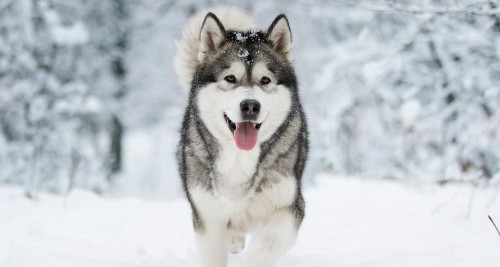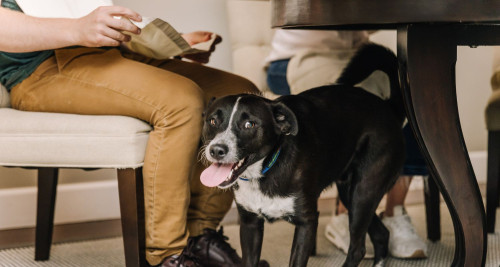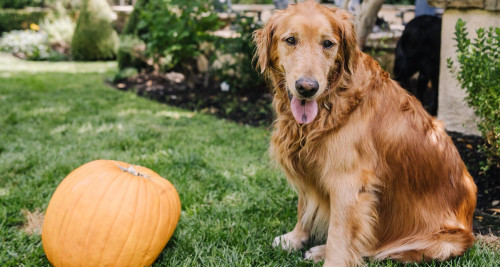The Corgi
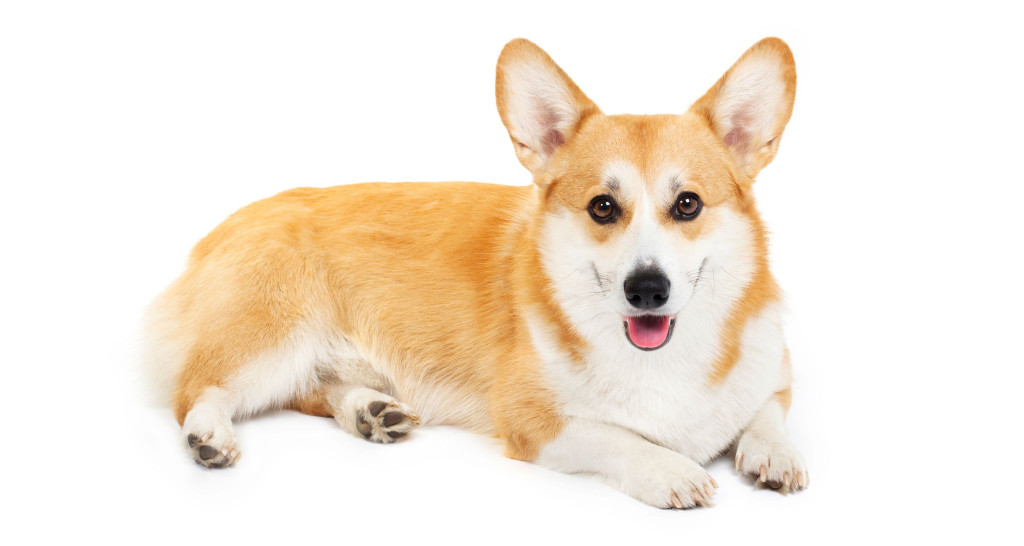
Breed Traits and Characteristics
According to the American Kennel Club, here are some breed characteristic you can find in Corgis.
- Height
10-12 inches
- Weight
Up to 20 pounds (male), up to 28 pounds (female)
- Life Expectancy
12-13 years
- Coat Type/Length
Double/Short
-
100 Affectionate with Family
-
60 Good with Young Children
-
80 Good with Other Dogs
-
80 Trainability Level
-
80 Energy Level
-
80 Barking Level
-
80 Shedding Level
-
20 Drooling Level
History
Some find it hard to believe that a dog the size of the Pembroke Welsh Corgi was bred for herding cattle, but its deeply entrenched instincts that back centuries: it is believed that the cattle dogs that were brought to Wales by the Vikings in the 9th and 10th centuries are the true ancestors of the Corgi as we know it today. (It is also possible that they may have descended from a line of dogs that were brought to Wales in the 12th century by Flemish weavers.)
Corgis possess all the vital traits to be extremely efficient cattle dogs: tenacity, determination, and high intelligence. Both the Pembroke and its close cousin, the Cardigan Welsh Corgi, descend from the line of northern spitz-type dogs. Initially recognized as one breed, the Kennel Club of the UK decided in 1934 to recognize the Pembroke and Cardigan separately. The American Kennel Club followed suit in the same year and in 1936, the Pembroke was first shown in the USA. The official AKC breed standard is maintained by the Pembroke Welsh Corgi Club of America.
The Pembroke Welsh Corgi is perhaps best known for being Her Majesty Queen Elizabeth’s preferred breed of dog. Queen Elizabeth II of England was given her first Corgi by her father, King George, in 1933, and the breed has been a fixture in her life ever since.
Corgi Personality & Temperament
Pembroke Corgis are highly intelligent, outgoing, and friendly dogs. Strong and athletic, Corgis are happiest with moderate daily exercise – they especially love herding and chasing, the same activities they engage in as working dogs. Their pleasant disposition makes Corgis a great fit for families, and their protectiveness if they sense a threat to their family or social group makes the breed great watchdogs. Their determination can sometimes turn into a stubborn streak, however, making early, consistent training beneficial to avoid future behavioral issues.
Corgis have become more and more popular in the USA, and for good reason: they are great family dogs, with keen intelligence that means they take to training well. This same intelligence can be a challenge for their owners, however, as Corgis do not relinquish leadership easily – after all, the same determination, tenacity, and independence that serve them well as herding dogs can also make them a challenge to handle.
If you are thinking of purchasing a Corgi, it is especially important to source from an ethical, responsible breeder who is breeding for not only looks, but health and temperament as well. Rescues are also great options for prospective Corgi owners. Contact your local Bark Busters trainer today to learn about great breeders and rescue organizations near you!
Corgi Physical Characteristics
Muscular, long, and low-set, Pembroke Corgis differ from their cousin, the Cardigan Welsh Corgi, in several respects: Pembrokes typically have docked tails compared to long tails for Cardigans (though some countries have banned the practice, making the difference more difficult to spot); additionally, the Cardigan has a slightly larger head and comes in different colors than its Pembroke counterpart.
Class & Color
Class
- Herding Class
Color:
- Red
- Fawn
- Sable
- Brack and Tan
- (All colors may be with or without white markings)
Size
Pembroke Welsh Corgis are small but powerful dogs with surprising agility given their size and short legs.
- Small
- Height: Height: 10-12 inches
- Weight: up to 30 pounds (male); up to 28 pounds (female)
Life Expectancy
Pembroke Corgis maintain good genetic health, especially when purchased from responsible breeders, though some can suffer from inherited conditions like hip dysplasia, elbow dysplasia, and other rare conditions.
- Pembroke Welsh Corgis typically live between 12 and 13 years.
Corgi Common Behavioral Issues
The common issues with Corgis are normally barking, chasing, leash-pulling and sibling rivalry. They can be bossy with other dogs, with a desire to rule the roost. Early training makes a real difference when it comes to managing the strong herding instincts possessed by Corgis, which may transfer to everything they do. Good management is especially important around young children, who may be nipped during overexuberant play. The Corgi is not malicious, but it can get itself into trouble if left on its own to run the show.
If you are struggling with your Corgi’s behavioral issues, contact your local Bark Busters trainer. Our trainers are available both in person and through live interactive virtual sessions to help establish a pattern of consistency, resolve any and all issues, and help you nurture a relationship with your Corgi built on mutual understanding, trust, respect, and love.
Corgis have never been known to walk away from a fight, but the generally won't start one. It is important to socialize them properly from an early age to avoid behavioral issues.
Aggression is not normally an issue with Corgis, though they can become leash-reactive if allowed to lead on walks. Training can help curb their potential to nip at heels if they get excited – call your local Bark Busters trainer to learn more.
Prevention is far more preferable to a cure – early basic obedience training is absolutely vital to ensuring your Corgi understands and follows your rules.
All dogs need a special place to call their own. By selecting a place for yours to eat and sleep away from high traffic areas of your home, you can set good habits early in its life.
We are standing by to help you develop a consistent, compassionate approach to good behavior for your Corgi. Learn more about our services and schedule an in-person or virtual appointment with one of our trainers today!
Connect with Us!
Need help training your Corgi? Call 1-877-500-BARK (2275)or enter your zip code.
Corgi Health
Health
Pembroke Welsh Corgis are generally healthy, though some may inherit hip dysplasia, elbow dysplasia, or Von Willebrand Disease.
Corgis need daily exercise to stay healthy and happy. Consider walks or jogs, but be mindful of their short legs, which can hinder their ability to keep up at faster speeds.
Corgis are very intelligent and need mental stimulation. Consider a puzzle or chew toy that stimulates a dog’s natural desire to chew.
Corgis benefit from structure and direction, including proper socialization from a young age with people and low-energy dogs.
Grooming
Corgis possess a weatherproof short undercoat with a longer, coarser outer coat of varying length. Pembrokes benefit from a once-daily brushing with a comb and slicker brush to minimize their tendency to shed, which increases in spring and early summer. The American Kennel Club also recommends occasional baths to loosen dead hairs (though Corgis should be completely dry before brushing), regular nail trimmings, and routine ear checks.
Tips for Every Dog Owner
Hear from Bark Busters Clients Who Have a Corgi
Bring Out the Best in Your Corgi: Submit Our Form to Learn How Expert Training Makes a Difference!
Enter your zip code and fill out this short form, and we’ll contact you within 24 hours to talk about your dog’s training needs. Get the one-on-one support of in-home training and avoid group class frustrations.
- 99.7% 4 or 5 stars 99.7% rate their experience with Bark Busters as 4 or 5 out of 5 stars.
- 99.6% Would Recommend 99.6% would recommend Bark Busters to their friends and neighbors.
- 99.5% Dog Responded 99.5% think their dog responded well to the training.
Need Dog Training Assistance with your Corgi? Find Your Local Trainer Now!
CALL TODAY 1-877-500-BARK (2275)
